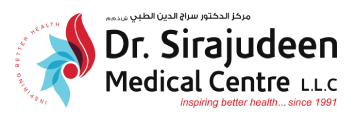Maintaining a healthy life means taking care of each and every aspect of our health, which also includes oral health. Ignoring oral health can affect our lives in many ways and it can sometimes lead to severe cases. One of the increasingly leading causes that is affecting our oral health is the use of tobacco. A report by the World Health Organization showed that 20.9% of adults in our total world population may become tobacco users. The link between the use of tobacco and oral health has been found to have an overall negative impact. In this detailed blog, we will discuss:
- What are the oral health risks of tobacco use and
- What you can do to prevent tobacco use
What are the oral health risks of tobacco use
- Gum (Periodontal) Disease: Smoking or chewing tobacco products can cause gum disease. This happens when tobacco is smoked and leads to plaque buildup that is filled with bacteria. If left untreated, this plaque will turn into a hard layer called tartar, which can affect your gums by irritating them. People who smoke tobacco have reduced blood flow to their gums, which prevents important nutrients from reaching the gums. Over time, this condition can lead to periodontitis in which your gums pull back, teeth become loose, and may even fall out.
- Infections: If the blood flow to the gums is reduced, it prevents our body from fighting any oral infections. One of the tobacco effects on mouth is that it can make the immune system weak and cause damage to the oral issues. When this happens, your mouth and teeth are affected by bacteria and leads to infections like gingivitis. This causes your gums to swell, become red, and even bleed. Smoking tobacco can also lead you to have a fungal infection that affects your oral health.
- Taste and Smell: Using tobacco is not only bad for your gums but it can also reduce the sensation of taste and smell. It happens because your taste buds and cells in your nose get damaged. This means you can no longer enjoy the food that tastes good and smell good aroma. The reduced sensation of smell and taste can lead to poor nutrition. The tartar or plaque build can change the natural taste of food and beverages, which can make people who use tobacco to change their diet.
- Dental Treatments: Using tobacco, whether it is smoking or chewing, can reduce the healing time of your gums and teeth after any dental treatments. If you are a tobacco smoker who has gotten tooth extractions, dental implants, or any surgeries, it can lower the healing time because there is less blood flow to the gum tissues. If you are getting any braces or aligners, tobacco use can prevent your teeth from moving and sitting in a proper place. Teeth whitening or lightening treatments also have poor results due to tobacco.
- Teeth Stain and Bad Breath: The easily visible smoking effect on teeth because of tobacco use is staining. Since tobacco is made from the plant/leaf and many chemicals like nicotine and nitrate, it produces unhealthy and brown smoke. When this tobacco smoke is inhaled by mouth, it can get into the teeth enamel and form a layer on your teeth and make them look yellow and sometimes even dark brown. Tobacco use can also dry your mouth and allow bacteria to grow, which can lead to bad breath (also called halitosis).
- Oral Cancer: One of the major oral health risks that you can get from using tobacco is oral cancer. The chemicals in the tobacco plants and the products have carcinogenic properties that can damage your oral cells. This leads to cancer of the lips, tongue, mouth, and throat. If you are using tobacco, you are more likely to get oral squamous cell carcinoma (OSCC) because your immune system will get weak and make it difficult for your damaged oral cells to heal.
What you can do to prevent tobacco use
The first step towards a tobacco-free life starts with quitting smoking and chewing tobacco products. The addiction to nicotine can be difficult to get over, but you can take small steps towards reducing the use of tobacco, starting now. Here are some things to try to prevent using tobacco:
- Seeking professional help
- Listening to music
- Yoga
- Deep breathing
Conclusion
In conclusion, tobacco use has many risks to your oral health like gum disease, infections, and oral cancer. It also reduces the senses of taste and smell. By quitting and following proper addiction-prevention methods, you can increase your oral and overall health.
